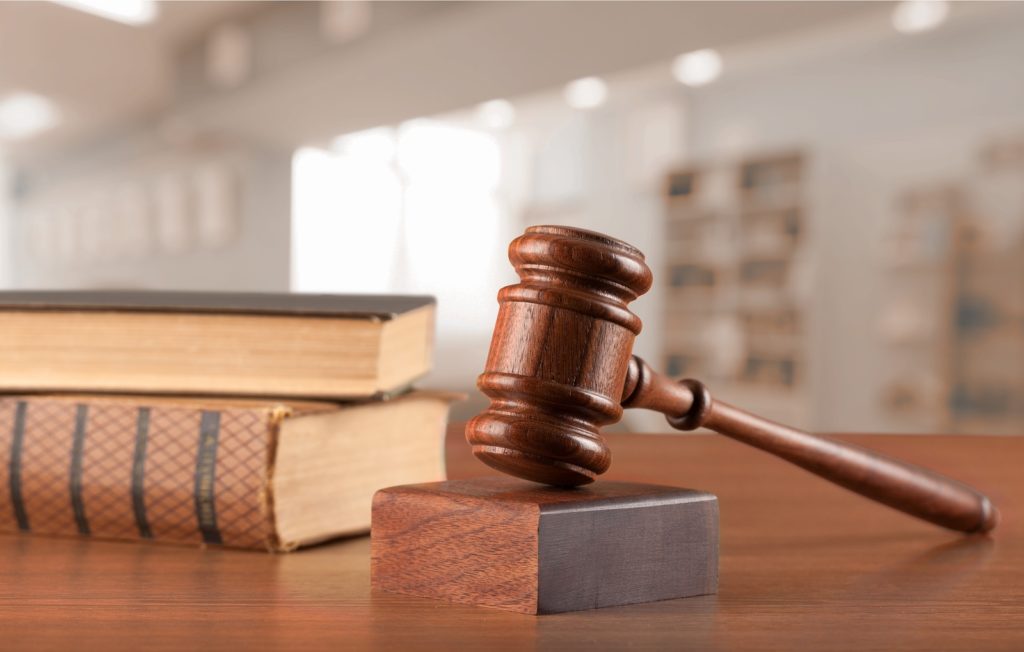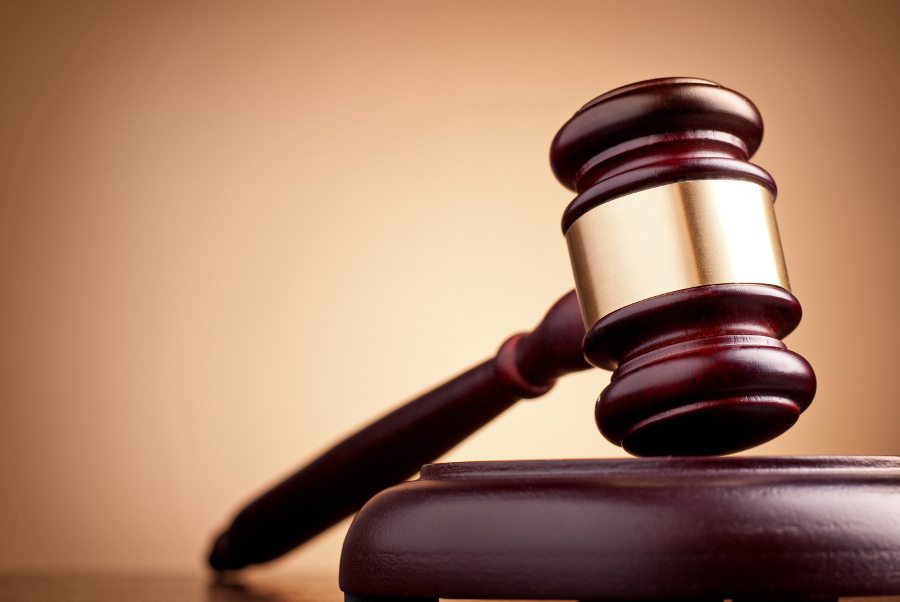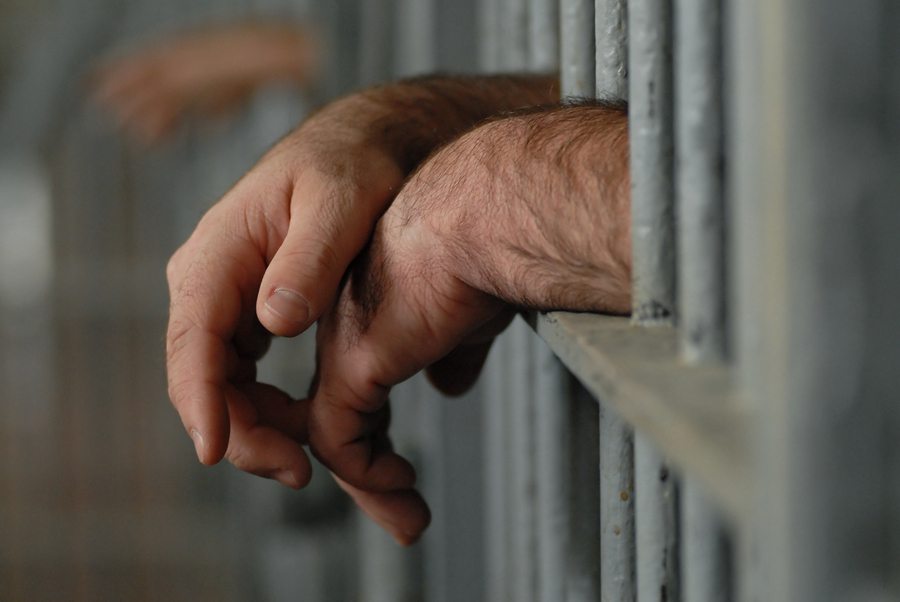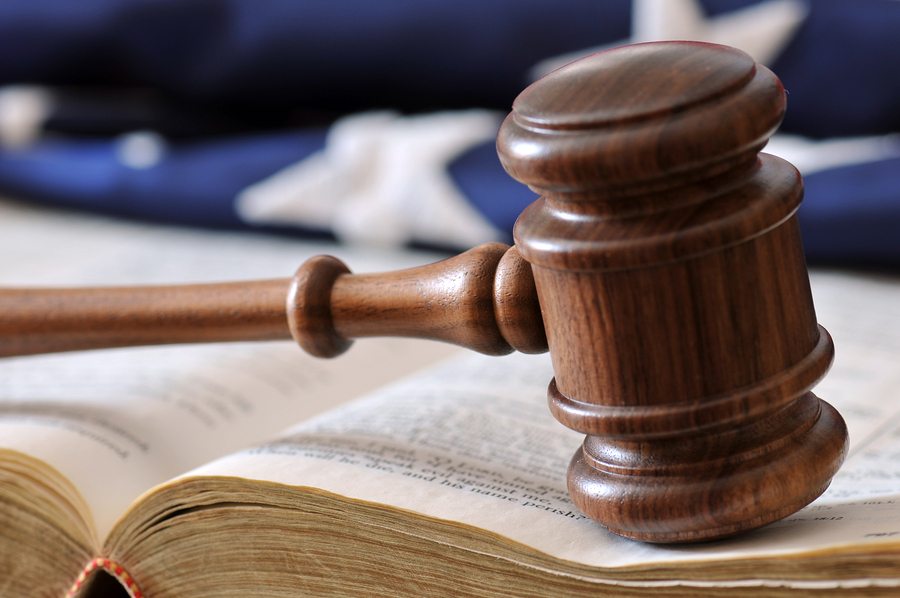When a person is placed on parole, it means they will be released from prison before serving their full sentence. In Utah, parole decisions are made by the Board of Pardons and Parole (BOPP), which you can read about in our article on how parole decisions are made in Utah. Here, we’ll be focusing on some common issues that might cause an inmate’s request for parole to be denied.
Why Would the Utah Board of Pardons and Parole Deny an Inmate’s Request for Release?

According to the National Institute of Corrections, 161 out of every 100,000 people in Utah were parolees as of 2014. With a state population of 2.9 million, that’s roughly 4,670 Utahans.
While parole is a possibility for many convicted offenders, including some who have been convicted of serious felonies, it isn’t granted to everyone. The BOPP decides to grant or deny parole on a case-by-case basis by evaluating each inmate across a list of many different standards and criteria. Depending on how the inmate meets these criteria, his or her request for parole could be denied. Some common reasons this can happen include:
- Releasing the inmate would endanger the community. Protecting the general public is a priority for the BOPP. If the inmate threatened a specific individual, or has a history of violent crimes, parole may be denied in the interest of public safety.
- The inmate’s crimes have become more serious over time. In cases where the inmate has a history of prior offenses, an escalation in the severity of the offenses is a red flag for the BOPP.
- The inmate is still in the process of recovering from substance abuse. In situations involving drug or alcohol abuse, the BOPP compares the length of the addiction against the length (and success) of the recovery effort. If the inmate is still early in recovery and likely to relapse after release, which is a risk factor for reoffending, parole is more likely to be denied.
- The inmate has prior offenses. While a criminal record won’t necessarily cause parole to be denied, release from incarceration is more likely to be granted if it is the person’s first offense.
- The inmate hasn’t paid restitution as they were ordered. Restitution is repayment toward a victim to help compensate the losses resulting from a crime — for example, being ordered to compensate the financial losses of a burglary victim, or the medical costs of an assault. The BOPP needs to see that an honest effort has been made to pay the restitution ordered.
- The inmate hasn’t served enough of his or her sentence. Following the Utah sentencing guidelines, the BOPP follows a complicated process to calculate the inmate’s total sentence, credit for time served (CTS), and the expiration date of the sentence.
- The inmate has a high risk of recidivism. Recidivism means committing multiple crimes. Parole is more difficult to get approved for when the inmate is likely to reoffend without the aid of additional treatments or programs.
- The inmate used a weapon to commit the crime. This could be any weapon — not just firearms.
- The nature and seriousness of the offense. Parole is more likely to be denied when the crime involved an element of “cruelty or depravity.”
- The offense wasn’t serious enough. Under Utah Code § 77-27-5(1)(a), he BOPP only has authority to grant parole for felonies and Class A misdemeanors. Parole is not available for Class B misdemeanors (which have a maximum sentence of six months in jail) or Class C misdemeanors (which have a maximum sentence of three months in jail).
- The sentencing court recommended against parole being granted. The BOPP looks at notes and comments from the court that originally sentenced the defendant.
- The victim was an exceptionally vulnerable person. Offenses against children, seniors, and individuals with severe disabilities are less likely to qualify for parole.
- The victim was seriously impacted by the crime. The BOPP is more likely to reject parole requests when the victim lives with psychological trauma or a permanent disability because of the offense. Victims are allowed to attend parole hearings, which are open to the public, and may also submit letters or formal impact statements to the Board for consideration.

Schedule a Free Consultation with a Salt Lake City Parole Violation Lawyer
If one of your loved ones is incarcerated and fighting to be released from prison, or has been accused of violating their conditions of parole, it’s important to have an experienced Utah parole violation lawyer fighting on your family’s side. Aggressively representing defendants and parolees in Utah for over 16 years, Salt Lake City criminal defense lawyer Darwin Overson handles misdemeanor and felony criminal charges and parole violations, including weapons crimes, sex crimes, drug offenses, and violent crimes.
If your family needs legal help with a parole issue in Utah, call the law offices of Overson Law at (801) 758-2287 right away to set up a free legal consultation. Your information will be kept confidential.
When an inmate in Utah is granted parole, or early release from prison, he or she is required to comply with certain rules and conditions, similar to a person on probation. As Salt Lake City parole violation lawyer Darwin Overson explains in this article, parolees who violate their conditions of release can face serious criminal consequences – including the possibility of being reincarcerated.
Utah Parole Violation Consequences Can Include Reincarceration in Prison

Conditions of parole are determined and enforced by the Utah Department of Corrections and the Utah Board of Pardons and Parole (BOPP). Different conditions apply to different inmates, depending on factors like the nature and severity of the offense. For example, stricter standards apply to inmates who were convicted of sex crimes, with the strictest conditions applying to sex offenders convicted of crimes against minors, such as sexual abuse of a minor or unlawful sexual activity with a minor. Generally speaking, standard conditions of parole include remaining in Utah, obeying a curfew, and avoiding criminal activity, among other requirements.
If a parolee violates these or other conditions of parole, he or she may face severe penalties, depending on factors like the nature and seriousness of the violation. If the violation is minor, the BOPP may allow the offender to continue with parole – albeit subject to harsher requirements – which is called an “alternative event.” However, if the violation is serious, a warrant may be issued for the parolee’s arrest. In other words, the parolee will be taken back to prison.
In fact, the majority of Utah’s inmates are incarcerated due to parole (and probation) violations – close to 70% as of 2013, according to an audit of Adult Probation and Parole. The northern part of the state – including Salt Lake County, Cache County, Davis County, Tooele County, Weber County, and Summit County – has the highest concentration of inmates who are incarcerated for parole and probation violations. According to Pew data released last year, “Almost half of [Utah] inmates (46%) released from state prisons returned within three years.”
What Happens at a Parole Violation Hearing? What Legal Rights Does a Parolee Have?

If a parolee is accused of committing a violation, he or she will be scheduled for a parole violation hearing before the BOPP. Utah Code § 64-13-29(1)(b) guarantees timely hearings for alleged parole violators who are being detained, providing the following:
“In cases where the [D]epartment [of Corrections] desires to detain an offender alleged to have violated his [or her] parole… and where it is unlikely that the [BOPP] or court will conduct a hearing within a reasonable time… the [D]epartment shall hold an administrative hearing within a reasonable time, unless the hearing is waived by the parolee… to determine if there is probable cause to believe that a violation has occurred.”
Additionally, Utah Code § 64-13-29(2) prohibits the Department of Corrections from detaining an alleged violator for more than 72 hours. However, Utah Code § 64-13-29(3) allows the Department of Corrections to “detain the offender for a reasonable period of time after the hearing… to arrange for the incarceration of the offender” if there is probable cause to believe the parolee committed a violation.
At the hearing itself, the parolee will have the opportunity to deny or confess to the alleged violation, similar to pleading guilty or not guilty at an arraignment. If the parolee denies the allegations, the BOPP will schedule another hearing called an evidentiary hearing to determine whether a violation occurred.
If the alleged violation involves a criminal act, the parolee also risks being charged with a new crime. For example, if the violation involved controlled substances like marijuana, methamphetamine, or heroin, the parolee might be charged with an offense like drug possession. In this type of scenario, the new charge would be handled by one of Utah’s criminal courts, not before the BOPP. However, if the parolee is convicted of the new offense, the BOPP will have jurisdiction (legal authority) over the parole aspect of sentencing. Otherwise, judges refer to Utah sentencing guidelines to impose a jail or prison term.
Critically, Rule 671-517-3 of the Utah Administrative Code gives parolees the right to legal representation by a criminal defense attorney. With some exceptions, parolees generally have the right to cross examine (question) any witnesses against them, and to present their own evidence as a way of rebutting the allegations.
Our Attorneys in Utah Have the Experience to Handle Your Case
If you or one of your family members was charged with a parole violation or probation violation in Utah, it is vitally important that you are represented by a skilled defense lawyer who has experience representing parolees and probationers. Call the law offices of Overson Law at (801) 758-2287 to set up a free legal consultation. While our law offices are based in Salt Lake City, parole lawyer Darwin Overson handles cases throughout the state of Utah.
Going through all of the stages of the legal process can be a harrowing experience if one does not know the proper steps to take before, during and after a trial. However, preparation can be difficult or impossible if one does not fully understand the process. When facing a process with the potential to dramatically alter a person’s life, such as a criminal trial, there truly cannot be enough thought and energy put into the preparation period.
The old adage “He who represents himself has a fool for a client” is often quoted in criminal courts because self-representation in a criminal matter is fraught with legal pitfalls. No matter how small or simple an allegation may seem, there are countless procedures and rules that must be taken into consideration in order for the process to run smoothly. Even when the person charged with a crime is a criminal defense attorney, seeking representation is the wisest choice because a trusted third party can provide the perspective needed to address the matter strategically. For the criminally accused, having a sounding board for the specific circumstances of a case is one clear advantage of retaining counsel for a trial. Another key advantage is avoiding emotional and personal bias that can affect the character of one’s analysis and strategy.
Work with a Utah Criminal Defense Lawyer You Are Comfortable With

Based on the information the attorney is told and that he or she can uncover, your attorney will formulate a legal strategy to defend against the criminal charges you face or to present your side of the story in a legal dispute. Once counsel has been retained, at your first meeting you should be open and honest with answering your attorney’s questions, and work to provide additional information. Under the Utah Court Rules, Rule 504, there’s guaranteed confidentiality in the matters discussed between client and attorney, barring certain exceptions determined by law.
This disclosure should include possession of key pieces of evidence, previously made statements to law enforcement, criminal background and all circumstances surrounding the case. Only with a complete and accurate picture of the matter can your attorney recommend an appropriate legal strategy. If you find it difficult or impossible to talk openly and honestly with your attorney you are likely hurting your defense.
Along the same lines, remember that, even if you have a public defender, your attorney is on your side. If you are given a public defender, but wish to have private counsel instead, that is your right. It is important to have an attorney you believe is working for you. Despite this, it is important to understand that it is perfectly normal for the entire trial strategy to be under your attorney’s control. While you might be able to give input, ultimately, your attorney is in charge of how to do the job you hired him or her to do. You always have the power to fire your attorney if you want, but that is not a power to be used lightly – and the court may not allow you to change attorneys too many times.
It is important to find an attorney you trust and can work with from the beginning. One of the worst things you can do in your own case is fail to trust your attorney with information. The best way to win a case is to make sure that there are no surprises for your attorney.
Experienced Attorneys Establish and Support a Narrative
Neither the judges nor the jury was present during the events that led to the charges. Evidence, witness testimony, expert opinions, and other statements are the only guides judges and juries have when making decisions. Therefore, it is not only important to provide them with the most complete account of what happened, but also to provide the context and narrative that ties the pieces of evidence together in a coherent manner.
Your attorney will work on your side of the story until all details are properly covered and accounted for. It is possible to submit your version of things in a sworn statement in order to avoid inaccuracies and to cover as much ground as possible before the trial begins. Whether you are attempting to establish an alibi or otherwise prove that conduct did or did not occur, evidence and documents are key tools for verifying information in your story and can mean the difference between freedom and a jail sentence. Working with an experienced attorney can increase the odds that every relevant document or other piece of evidence pertaining to your case will be assessed. A few examples of evidence that may come up in different kinds of cases:
- Vehicle registration and insurance documents.
- A title deed to a property.
- Tax returns from previous years.
- Bank statements or proof of payments.
- Law enforcement or police reports.
- Bullet casings or spent ammunition.
- Drugs allegedly recovered at the crime scene.
- Photos or videos recovered from a cellphone, computer, or social media account.
If you have any doubts about the relevance of evidence or witnesses you may have available, do not hesitate to ask your attorney. Defendants may sometimes think that everything in the world is relevant to their case, but sometimes a particular piece of information can be very important. Do discuss these kinds of topics with your attorney.
Prepare to Defend Against Criminal Charges

In any criminal legal matter, the defendant may or may not decide to take the stand to present his or her side of the story. However, before a criminal defendant takes the stand as a witness there are important legal and non-legal factors to consider. In some matters, the defendant’s testimony may be highly effective. Most of the time, though, defense attorneys warn you against testifying in your own defense, since it may open the door to information, character attacks, inconsistencies, and demonstrations of poor memory that would not have occurred if you did not testify. Ultimately, though, it is your right to testify in your own defense if you want to. It is illegal, though, to lie when testifying in your own defense, and may severely hurt your case. Just make sure to be open about your decision with your defense attorney. Almost nothing, except lying, can hurt your case more than surprising your defense attorney by testifying yourself.
An experienced Salt Lake City criminal defense lawyer can provide advice as to whether it would be wise or effective for the accused to testify. Furthermore, if it does appear likely that such testimony would be effective, your attorney can prepare you to present your side of the story in a clear and confident manner. After all, it is less likely others will believe your story if you do not present it in a confident and authentic way. Your attorney should spend plenty of time preparing you for this crucial part of the trial. And as with any legal proceeding, it is essential to present and conduct yourself in a serious manner, and show plenty of respect for the norms of the court at all times.
Prepare to Go to Court
Even if you are going to an arraignment or a preliminary hearing, or to trial itself, you should be prepared to enter the courtroom and act appropriately. Any time you appear before a judge, it is important to act respectfully. If you are directed to answer questions, always use phrases like, “Yes, Your Honor,” and “No, Your Honor.” Always listen to the judge’s instructions, and do not interrupt anyone. There may be times that a judge will ask you a question, but most of the time, if you have a lawyer with you, the judge will speak to your lawyer instead. Your time in the courtroom is not your time to get your voice or your objections heard – the whole point of hiring a lawyer is so they can do that for you.
Honestly, prepare for some frustration; it is scary and frustrating to be facing criminal charges, especially if you are innocent. You may want to do nothing but scream at the judge and the prosecutor, but it really is in your best interest to sit quietly and let your attorney do the work. Avoid commenting or calling out in response to things that are said. Remember that you are not an audience member.
If you think that something is unfair, wrong, or that a piece of information was missed, tell your attorney quietly. When you are in preliminary hearings or arraignments, you may have some opportunity to step out of the room and speak with your attorney in private, where you can voice your concerns. During trial, your attorney may be focused on the prosecution’s questioning, so it is important to work out with your attorney how you may pass notes during trial.
It is also important to look professional and calm during trial. The judge and jury will be watching you throughout the process, and it is important to come across well. That means that you should appear to court in clean, wrinkle-free clothes. During pre-trial hearings, if you are in jail, you may be brought into court in handcuffs and a jumpsuit, but the court should not be allowed to bring you in front of a jury in handcuffs. Men should wear a suit and tie, or at least a dress shirt and pants. Women should wear similar clothing, or a dress or skirt. Depending on what you have available to you, you should try to dress how you think a lawyer or professional would dress. Also, unless your attorney advises you otherwise, your hair and makeup should be plain and simple. If you have any visible tattoos, you may want to cover them. You may also want to remove piercings, if possible. Depending on the members of the jury, your attorney may have different advice, but these are good guidelines.
Possibly more important than the way you dress is the way you act. It is important to sit up straight and look like you are paying attention. Almost nothing seems guiltier than a defendant who does not seem to care that he or she is in court. Your day in court could change your life, so it is important to demonstrate to the judge and jury that you understand that.
The legal team of Overson Law LLC has the experience to represent you or a loved one before any Utah court. Call our firm at (801) 758-2287 to arrange a consultation free of charge and start preparing your defense today.
Every criminal defense attorney brings different strengths to the fore for his or her clients. All work in their clients’ best interests, but not every counselor is created equal. Some, in fact, are terrible. How can you determine if an attorney or firm has what it takes to handle your criminal case and handle it in a professional manner? Watch out for these warning signs, and you just may avoid getting into a situation that could otherwise harm your case.
The Defense Attorney Offers Discount or Below-Cost Services
Retainers are often commensurate with skill level. A criminal defense lawyer who offers low introductory rates comes off seeming more like a car salesman than a legal advocate. Avoid these bargain basement rates, as these attorneys may not have the courtroom experience your case demands. You want experience, not a lawyer who’s still learning the ropes. If he makes a mistake, he won’t be the one paying the price – you will.
Here is the reality. An attorney who charges you a $1,500 flat fee to handle a drug possession case will do okay for him or her self if the attorney convinces you to plead guilty. If there is an issue of whether the officer violated your rights during the search, a motion to suppress has to be filed. That takes time and work. If there is a question whether the lab handled the testing properly, that will require another motion, more time, more work and possibly an expert to testify about what was done wrong with the testing. If that attorney files the necessary motions, hires the right experts and conducts the hearings, the attorney will not make very much money defending you and may actually take a loss after paying overhead.
In that scenario, do you think that attorney has much incentive to tell you about the fact that a motion to suppress could result in the case being dismissed? Do you think the attorney has much incentive to set the case for trial? Probably not.
Don’t be surprised if the fees for one attorney are three or four times higher than with another attorney. You are not buying a car. You are hiring a professional to defend your freedom. If your freedom is taken from you, you cannot work and that is an extremely expensive proposition. Far more expensive than paying a competent attorney.

The Defense Lawyer is Rude to Clients
A positive attitude matters.
Criminal defense is a service industry – nothing more. Your attorney has a legal obligation to mount a rigorous defense on your behalf, and accomplishing that usually requires a fair amount of communication with you as the client. A lawyer who’s rude to you over the phone, or on first meeting, will probably continue the behavior throughout your relationship. If your attorney isn’t going to treat you with the dignity and respect you deserve, there’s no reason to pay that professional to represent you. Move on to a legal professional who can engage you in a pleasant manner, and put your mind at ease about what you’re going through.
Don’t Be Misled By Fake Reviews
In today’s world, there are literally hundreds of directories and websites that purport to provide information about attorneys including reviews of their services. Beware that many of these so-called reviews have been posted by friends, family, the attorney, and marketing agencies to give a false impression the attorney’s abilities. Take such reviews for what they are.
Ask the Attorney What Defenses Exist In Your Case
If you are able to provide a fairly thorough explanation of the case, a seasoned criminal defense attorney should be able to tell you what defenses may be viable in defending you. This may be the most straightforward way of assessing counsel’s experience and skill set.
If the attorney is vague about what he or she would do, the attorney is likely counting on you pleading guilty. If the attorney claims to have a special relationship with the judge or prosecutor that can be drawn on to help you, get up and leave. I am friends with a lot of judges and prosecutors. That is not the reason I obtain favorable outcomes for my clients. I obtain favorable outcomes for my clients by working hard, working smart and preparing for trial.
Don’t Count on Guarantees
If the attorney makes any guarantees as to the outcome of the case, get up and leave. It is a violation of the Utah Code of Professional Conduct to make such promises and given the nature of the criminal justice system, any kind of guarantee relating to the outcome is a pure fraud. Don’t fall for it. An experienced attorney will provide you an honest opinion as to what you should expect as an outcome. A statement by the attorney of what reasonably can be expected is okay provided it is always always always prefaced with a recognition that there are no guarantees.
If the attorney is specific and can outline a reasonable approach to defending the case, you likely have someone who is able to help you. If the attorney can provide you with a reasonable estimate of how much work is involved in your case, it usually means the attorney knows what needs to be done. You probably have a keeper.
Get Help From an Experienced Salt Lake City Criminal Defense Lawyer with Overson Law, LLC.
Regardless of the charges you’re facing, you want a Salt Lake City criminal defense lawyer who’s going to put their all into your defense, and serve tirelessly as your loudest voice in the courtroom. If you’ve recently been charged with a crime, you need experienced representation as soon as possible. Call our law firm today for a case evaluation and explanation of your rights.







